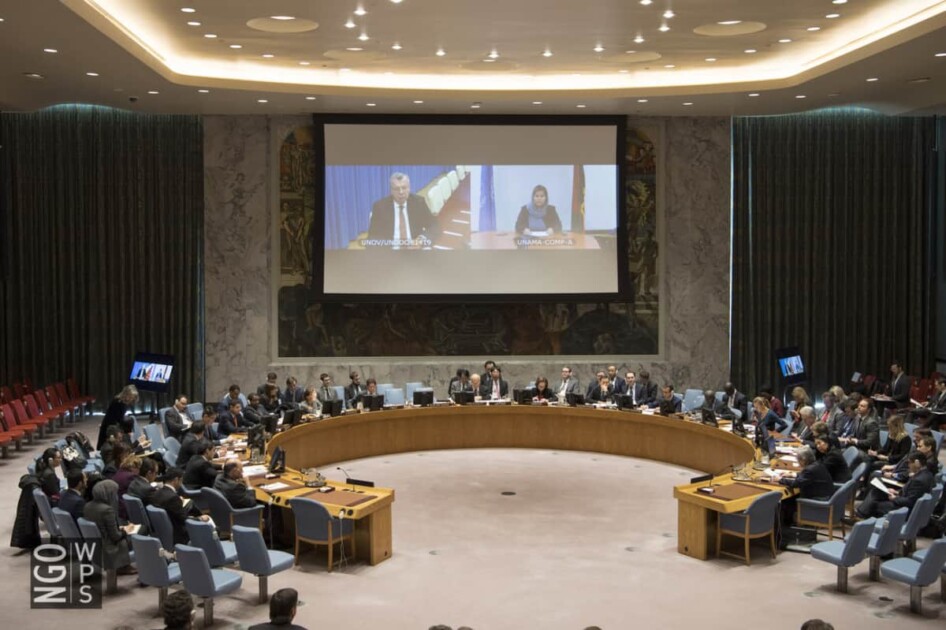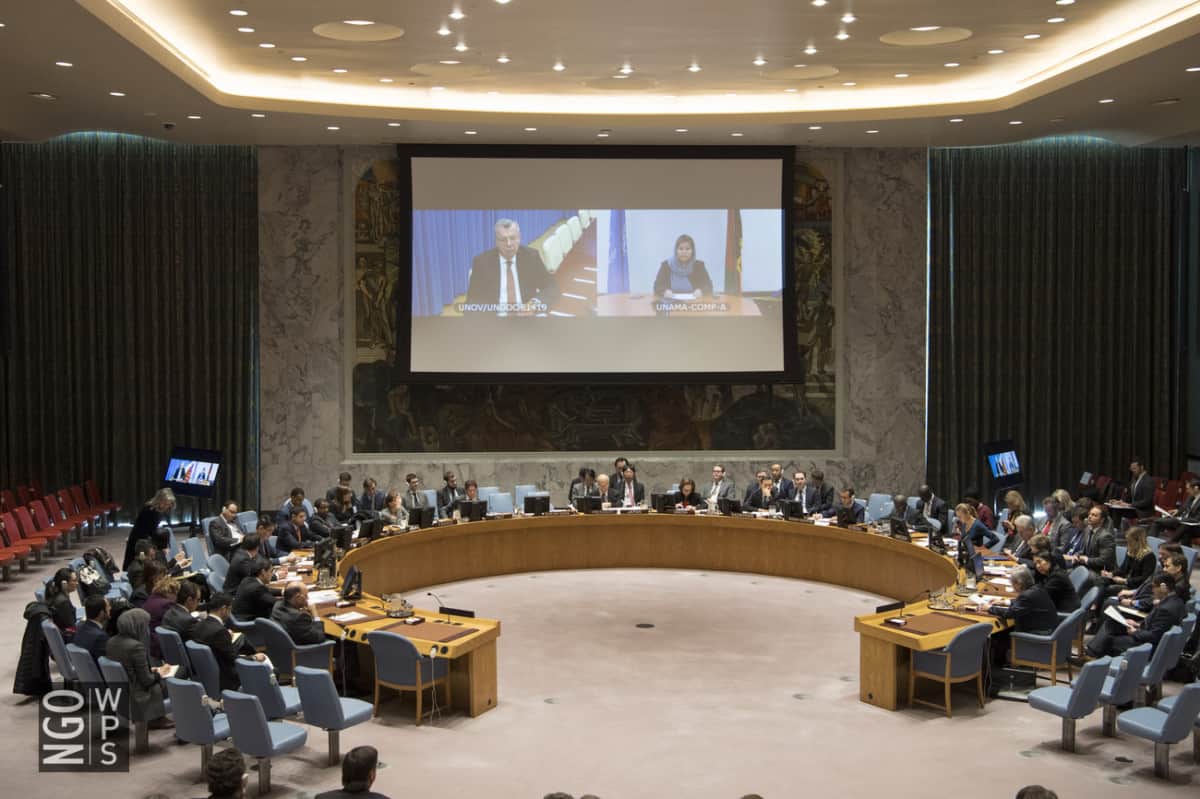Democratic Republic of the Congo
Women in the Democratic Republic of Congo continue to face widespread sexual violence, disease, and displacement in conflict situations arising from clashes between dozens of armed groups. Often, sexual violence and rape are used as terror tactics and weapons of war, and despite the ratification of the Convention on the Elimination of All Forms of Discrimination against Women (CEDAW) and the Women’s Platform for the Peace, Security and Cooperation Framework, women are still largely underrepresented in peacebuilding efforts. Additionally, women activists face rape as a form of torture by government actors who disagree with their political activity. The United Nations Organization Stabilization Mission in the DRC (MONUSCO) aims to provide protection for civilians, including reducing the threat of armed groups perpetrating sexual and gender-based violence, monitoring and reporting on sexual violence and ensuring women’s participation in stabilization and national political dialogue.
Democratic Republic of the Congo
Women in the Democratic Republic of the Congo continue to face widespread sexual violence, disease, and displacement in conflict situations arising from clashes between dozens of armed groups. Often, sexual violence and rape are used as terror tactics and weapons of war, and despite the ratification of the Convention on the Elimination of All Forms of Discrimination against Women (CEDAW), and the Women’s Platform for the Peace, Security and Cooperation Framework, women are still largely underrepresented in peacebuilding efforts.
Additionally, women activists face rape as a form of torture by government actors who disagree with their political activity. The United Nations Organization Stabilization Mission in the DRC (MONUSCO) aims to provide protection for civilians, including reducing the threat of armed groups perpetrating sexual and gender-based violence, monitoring and reporting on sexual violence and ensuring women’s participation in stabilization and national political dialogue.
Current and Past Recommendations to the UN Security Council (Monthly Action Points)
The post-election situation in the Democratic Republic of the Congo (DRC) continues to be insecure and violent. At least 14 civilians were killed in Kinshasa during election-related violence, and at least 12 opposition supporters and bystanders were fatally shot and 41 others suffered gunshot wounds during violence near Arret Kingasani, Arret Pascal, Marché de Liberté, Pont Matete, and in the Limeté neighborhood. Election irregularities have included fraud, intimidation of voters and political party witnesses, and violence by armed groups has been reported in numerous regions. In addition, we remain deeply concerned at the persistent lack of accountability for crimes in DRC, including mass rape in Walikale in 2010 and in the area around Fizi in 2011, as well as the most serious violations of human rights and international humanitarian law in the DRC between March 1993 and June 2003, as reported by OHCHR in 2010. This lack of accountability further exacerbates the security concerns in these communities. In its discussions on the situation in the DRC, including on the expected Secretary-General report on the UN mission in DRC (MONUSCO), the Council should:
- Condemn the violence, including that committed by security forces, in the aftermath of the November 2011 elections;
- Call upon the Congolese government to investigate and hold to account individuals, including members of the security forces, who sought to intimidate political party witnesses and election officials engaged in compiling results;
- Hold the DRC government to account for the lack of prosecution of suspected perpetrators of sexual violence, and for inadequate witness protection and service provision for survivors, including by calling upon the DRC government to act upon the Congolese arrest warrant for Ntabo Ntaberi Sheka for crimes against humanity for mass rape committed in August 2010; and
- Ensure MONUSCO fully implements its mandate to prioritize the protection of civilians (SCR 1991, OP1).
The post-election situation in the Democratic Republic of the Congo (DRC) continues to be insecure and violent. At least 14 civilians were killed in Kinshasa during election-related violence, and at least 12 opposition supporters and bystanders were fatally shot and 41 others suffered gunshot wounds during violence near Arret Kingasani, Arret Pascal, Marché de Liberté, Pont Matete, and in the Limeté neighborhood. Election irregularities have included fraud, intimidation of voters and political party witnesses, and violence by armed groups has been reported in numerous regions. In addition, we remain deeply concerned at the persistent lack of accountability for crimes in DRC, including mass rape in Walikale in 2010 and in the area around Fizi in 2011, as well as the most serious violations of human rights and international humanitarian law in the DRC between March 1993 and June 2003, as reported by OHCHR in 2010. This lack of accountability further exacerbates the security concerns in these communities. In its discussions on the situation in the DRC, including on the expected Secretary-General report on the UN mission in DRC (MONUSCO), the Council should:
- Condemn the violence, including that committed by security forces, in the aftermath of the November 2011 elections;
- Call upon the Congolese government to investigate and hold to account individuals, including members of the security forces, who sought to intimidate political party witnesses and election officials engaged in compiling results;
- Hold the DRC government to account for the lack of prosecution of suspected perpetrators of sexual violence, and for inadequate witness protection and service provision for survivors, including by calling upon the DRC government to act upon the Congolese arrest warrant for Ntabo Ntaberi Sheka for crimes against humanity for mass rape committed in August 2010; and
- Ensure MONUSCO fully implements its mandate to prioritize the protection of civilians (SCR 1991, OP1).
Relevant Resources











